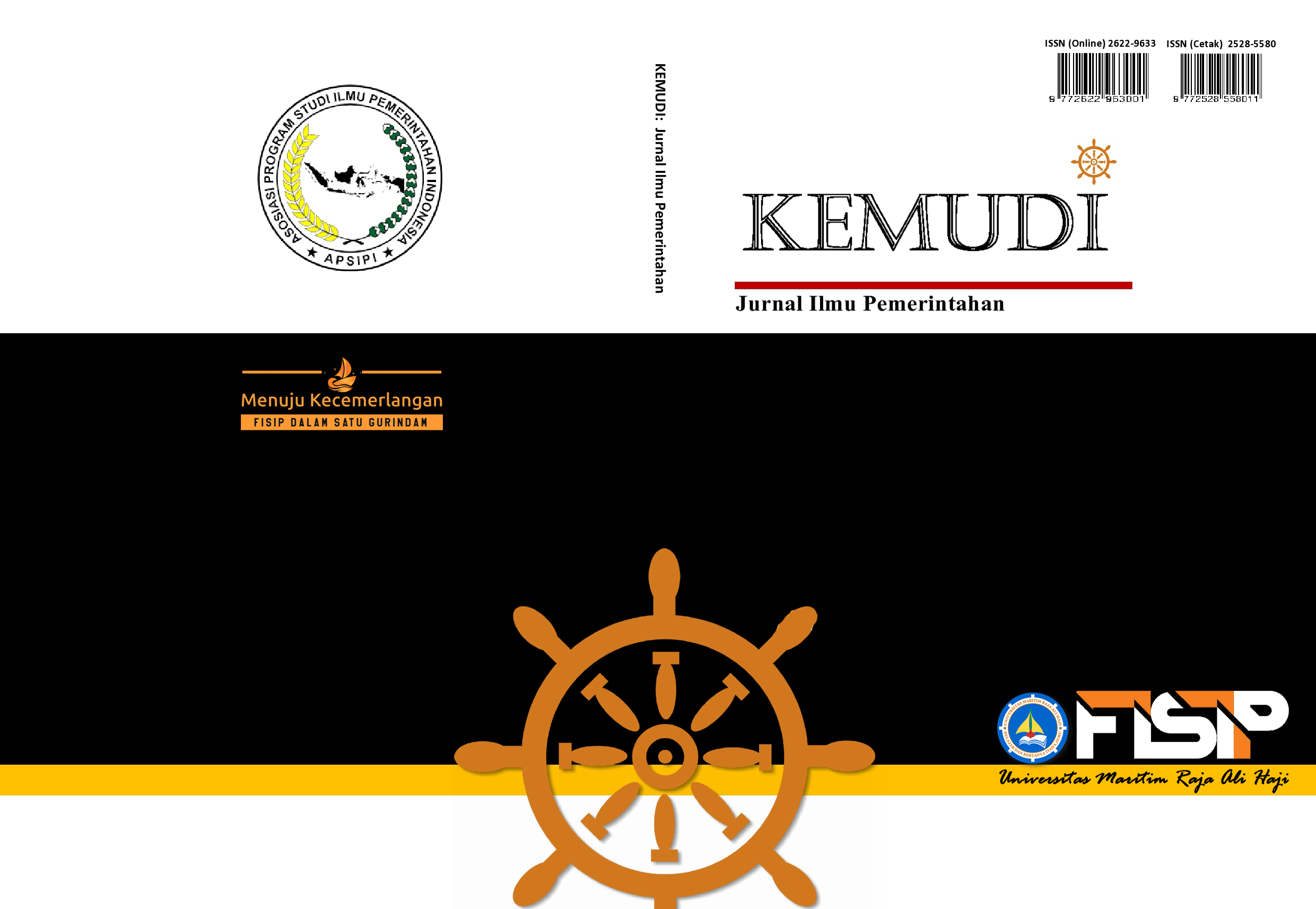Collaborative Governance in The Management of Waste Bank in Pekanbaru City
DOI:
https://doi.org/10.31629/kemudi.v9i2.7045Keywords:
waste bank, collaborative governance, co-optationAbstract
Waste banks are developing as a response to the worsening waste problem due to rapid urbanization and population growth. The development of waste banks is part of an effort to overcome the problem of urban waste. By reducing the amount of waste that pollutes the environment and helping to protect local ecosystems such as groundwater, rivers, and seas, from contamination and environmental degradation. Because waste management is complex, waste banks need to involve various parties, including the government, non-governmental organizations, the private sector, and the general public. The main problems in this study are the weak marketing of recycled products, the weak involvement of various parties in proper waste management to maximize recycling value and the lack of understanding of the benefits of recycled products among consumers. The main objective of this activity is to construct a collaborative governance model in the management of waste banks in Pekanbaru City. The method used is a qualitative approach. The results of the study show that the management of waste banks in Pekanbaru City has involved many parties from the Government, Industry, Society, and Universities, but the involvement that occurs does not yet describe the collaborative governance process in each stage, activities tend to run alone without any initiation by the government in the management of waste banks in Pekanbaru City. Therefore, the government, through the legitimacy it has, should start by identifying which stakeholders can be involved and be involved and co-opted so that they can move together through one command in a collaborative path so that the management of waste banks in Pekanbaru City can run optimally and waste problems can be resolved.
Downloads
Downloads
Published
Issue
Section
License
Copyright (c) 2025 KEMUDI : Jurnal Ilmu Pemerintahan

This work is licensed under a Creative Commons Attribution-NonCommercial-ShareAlike 4.0 International License.




